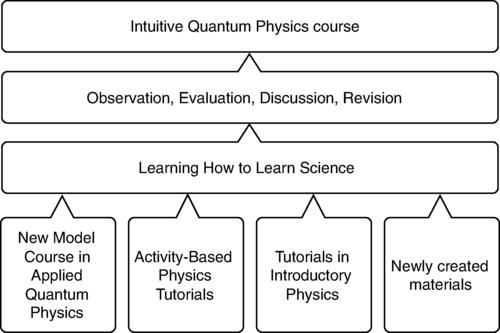
Teaching Quantum Physics to Non-Science Students: RiSE Faculty Member Michael Wittmann Publishes New Paper
RiSE Faculty member Michael Wittmann published a new paper in December, 2020 with co-author Jeffrey Morgan as part of a focused collection on how research theory can be used to support curriculum design. The paper explores the authors’ approaches while using research to inform design of a quantum physics course for non-science majors. In particular, the authors’ knowledge of theory in the learning sciences led them to value building connections between students’ experiences and the course material. The paper discusses their design process and strategies for supporting non-science majors to think scientifically about quantum physics topics.
Foregrounding epistemology and everyday intuitions in a quantum physics course for nonscience majors (link to open-access paper)
Abstract:
In developing and modifying a course called Intuitive Quantum Physics for non-science majors, several social and theoretical commitments informed our design decisions. We believed that the goal of a general education course should not be acquiring content knowledge alone, but more generally developing an approach to thinking scientifically. Thus, our course was designed to promote a deeper understanding of the nature of science through careful attention to students’ personal epistemologies. We emphasized everyday situations, be they social activities or personal experiences, as analogies to be used during instruction. We used these everyday events to help students make sense of quantum physics, choosing the topic exactly because it seems otherwise counterintuitive. Through this work, we hoped to help students make connections between complex topics (in this case in science) and their everyday experiences.
